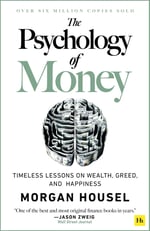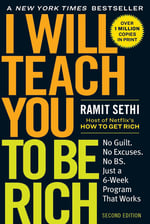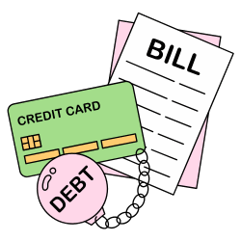7 Money Lessons I Wish I Learned in My 20s
Below I unpack 7 financial lessons I learned after my 20s and wish someone had told me this earlier. Join me as I share personal insights and practical advice to empower your financial journey, no matter your age. 🦄
12/31/20244 min read


Whether you're thriving or feeling lost in your financial journey, I want to share 7 money lessons I wish I'd learned in my 20s. I hope these lessons either reinforce good financial habits or inspire you to take control of your finances, no matter where you stand.
Lesson 1: Mastering Personal Finance Requires Practice (Don't Get Cocky)
I once thought I had everything under control. Why track every expense or write things down when I believed my spending habits were solid? This mindset led me to drop the ball, causing me to overspend for years and invest less consistently than I intended. The truth is, frequent checks on your spending and committing to regular investments are crucial. When you discipline yourself to budget and automatically invest part of your paycheck, you cultivate habits that will set you up for success in the long run.
Lesson 2: Detach Emotions from Money Decisions
Let's face it, money is deeply personal. We often buy things because they make us feel good whether it's joy from a new watch, the status from a luxury car, or empowerment from owning a beautiful home. While it's fine to enjoy these feelings, it's also important to approach money and spending logically.
Take my experience as an example: I wanted to rent a really nice apartment that seemed affordable on my salary. However, after applying the 50/30/20 budgeting rule, where 50% of your take home pay should go to fixed expenses, I realized the rent was more than 50% of my income. So, I opted for a more affordable place, allowing me to invest and save the difference. Thanks to this approach, I saved almost $100,000 in five years (I was shocked).
I had to learn this the hard way but continuously learning and reading books helped me approach money in a methodical, yet empowering way. Below are 5 books that have been invaluable. These authors offer a wealth of wisdom and transformative advice. Many friends and readers have requested book recommendations, and these are among my top picks!
Lesson 3: Penny Pinching is Exhausting. Instead Focus on the Long Game
To reduce spending, I would always order the cheapest thing on the menu when I'm out with friends, severly reduce my Starbucks latte intake, or refuse to spend money on a new pair of running shoes when it was clear I needed a new one. It's wise to periodically review your spending and identify potential savings, but I realized that there's a limit to how much you can cut before it starts to impact your happiness. I was miserable.
What truly transformed my financial situation was focusing on significant expenses, like rent and car payments. These are the real game changers. Moreover, I worked on increasing my income. Combining these strategies helped me gain control over my finances without sweating the small stuff.
Lesson 4: Research Major Purchases Thoroughly
ESPECIALLY when you're thinking about purchasing/leasing a car. Car salespeople can be tough negotiators, and they often take advantage of those who aren’t well informed about market rates. Always do your research ahead of time to ensure you get the car you want at the best possible price. Preparation is key to avoiding overpaying.
Lesson 5: Avoid Credit Card Debt at All Costs
RUN LIKE THE WIND. Credit card debt is the worst debt you can have. Why? The average interest rate on credits cards in the United States is 24%. You're not only going to be paying high interest, but it'll take longer for you to pay off because that interest compounds. Don't fall for the trap.
Lesson 6: Automate Your Savings
This is linked to the overconfidence I mentioned in Lesson 1. I assumed I could manually invest a certain amount each month, but I frequently skipped it. Automating your savings does more than just help maintain consistency effortlessly. It ensures you prioritize paying yourself first. This approach addresses a common financial mindset hurdle that many people face, making it easier to build savings without a second thought.
Lesson 7: Resist the Urge to Splurge with Unexpected Gains
Whether it's a substantial year end bonus or a surprisingly high tax return, always direct these funds toward savings or debt repayment first by acting as if the extra money doesn’t exist. This strategy was helpful for me because I've found that if I don't allocate this money wisely right away, I'll end up spending it. You'll thank me in the long run.






















That wraps up the valuable lessons I learned in my 20s! I hope you find them insightful and empowering. My ultimate aim is to help you navigate your financial journey with confidence and mastery. Here’s to making informed, effective money decisions together!
x PP
Look after the pennies, and the dollars will take care of themselves🙂
Penny and Purpose
"Look after the pennies, and the dollars will take care of themselves." 🙂
Join if you want more tips, strategies, and resources on business, finance, and investing! 📚 →
© 2024. All rights reserved.
